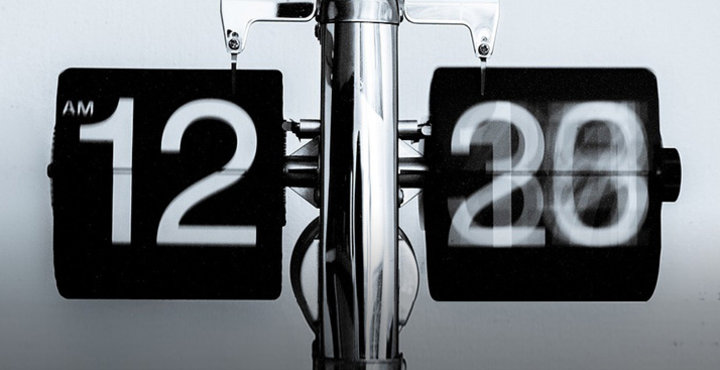
Punctuation Marks
In “Understanding Punctuation,” we covered some of the most common punctuation marks used in English writing. Now, let’s look at a few more punctuation marks in further detail.
Which vs. That
Contrary to popular belief, "which" and "that" do not function in a similar capacity. Although "which" and "that" are both pronouns, they are not interchangeable. "Which" is used for non-restrictive phrases and "that" is used for restrictive phrases.
Effective Time Management
If you're the type of author who is forever checking status updates on social networking websites, then the following are some time management skills that may help you buckle down and find the time to write.
Proofreading Marks: What Do They Mean?
A proofreader uses a series of proofreading marks and symbols to suggest changes, correct spelling errors, improve punctuation and generally enhance the quality and readability of a hard copy document.
Editing and Proofreading Tips for Bloggers
These editing and proofreading tips for bloggers will help the you optimize your posts and get the most out of your online publications.
Acronyms and Initialisms
Scribendi provides tips to help you use initialisms and acronyms correctly in your writing.
The Post-Interview Follow-Up
A post-interview follow-up letter will show your potential employer that you are grateful for the interview opportunity, as well as committed to the position. A follow-up letter will also give you one last opportunity to make an impression.
How to Write a Cover Letter
After weeks of searching, you’ve finally found it: a job posting that suits your skills and interests perfectly. Clinching an interview is vital when it comes to finding employment, so why take a risk? Follow our editor's advice and submit a cover letter along with your resume or application.
How to Format a Cover Letter
A nicely formatted cover letter attached to your resume is a great way to show a prospective employer that you are sincerely interested in the job being offered—it may even give you a valuable advantage over other candidates.
How to Write a Letter of Recommendation
Writing a recommendation letter may seem like a daunting task. Here are some guidelines that can help you get the style, tone, content, and presentation of your letter just right. The end result will be an effective and professional recommendation.
How to Write a Complaint Letter
Life is full of disappointments, but sometimes these disappointments are so great that they warrant further scrutiny. Rather than act like a spoiled child, ranting and raving, wouldn’t it be nice to be able to write a beautifully constructed letter of complaint?
Understanding Social Networking Websites
The idea behind social networking websites is really quite simple: the Internet has become a ubiquitous tool, and many people are now spending a large portion of their daily lives online, either for work or recreational purposes. Therefore, it’s only natural for the millions of Internet users all over the world to want a convenient way of staying in touch with each other.
How to Write a Screenplay
The editors at Scribendi explain how to write a screenplay and offer helpful tips that might make your script a blockbuster hit.
How to Write a Resume
Your formal resume is a summary of your education and job experience. It is the all-important document that will be your first impression to a prospective employer.
Editing or Proofreading?
It's common for many people, including business professionals and first-time Scribendi.com clients, to be a bit unclear about the differences between editing and proofreading.
10 Reasons to Hire a Professional Editor
Good writing comes from good editing. A professional editor does more than correct mistakes; they can help you turn lead into gold! The following are 10 reasons to hire a professional editor.
Making Comparisons
This is the second in a series of articles addressing several common grammatical issues. This article explains phantom or one-sided comparisons, which might be the most prevalent issue of all, particularly in academic papers.





